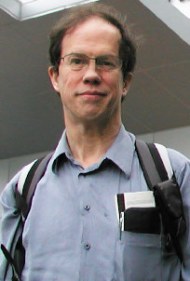 In 1920, Herbert H. Beck of Franklin & Marshall College published a short article in The Auk, a publication of the American Ornithologists’ Union. His article was titled “The Occult Senses in Birds”.
In 1920, Herbert H. Beck of Franklin & Marshall College published a short article in The Auk, a publication of the American Ornithologists’ Union. His article was titled “The Occult Senses in Birds”.
While Beck was explicit in his allegiance to the idea of human superiority—describing the human mind as “Nature’s master product” and other animals as “below man”—he could not deny that certain animal abilities exceeded those found in human beings; that humans had lost something as they pulled away from other animals. He wrote:
certain senses widely or selectively a part of animal life, are absolutely gone in man. So thoroughly are these senses atrophied or lacking in the human mind that man with all his highly developed imagination cannot even vaguely visualize the subtle processes by which they operate
As examples of occult powers which he believed to be highly developed in birds but absent in humanity, Beck addresses a homing sense, a food-finding sense, and a mate-finding sense.
Beck argues that acute vision and great memory are insufficient to explain the migration of birds who cover vast distances across unfamiliar terrain. Beck shares anecdotal evidence that he believes supports the claim that sight and smell alone cannot account for the turkey vulture’s (and other scavengers’) ability to find food. And at his most (admittedly) speculative, Beck suggests a mate-finding sense which may exist but resorts to observations of insects to bolster the claim before concluding that “unfortunately research on these occult senses is difficult—often impossible.”
At this point, depending on one’s perspective, it may be disappointing, a great relief, or simply anticlimactic to discover that Beck does not mean to imply that these occult powers are to be understood as in any way supernatural. He explains that
intimately interwoven with the life histories of thousands of animal species of past ages and many species of the present day there is an active sense which may be called occult simply because it is hidden from the experience and understanding of man
So what strikes modern ears as a highly sensational title hides a fairly reasonable claim: other animals possess senses and ways of knowing that are unavailable to human beings. This may be because such senses have atrophied and been lost or possibly because we never possessed them in the first place. More from Beck’s article:
All phases of the occult sense have long since been lost in the channels of life that progressed toward civilized man; they exist only selectively in animals below man to-day; but they are still an important factor of existence in many life forms, as they have been a potent determinant in past ages.
Over fifty years after Beck’s article and forty years ago to the month, philosopher Thomas Nagel published a highly influential article in the October 1974 issue of The Philosophical Review titled “What Is It Like to Be a Bat?”. In his article, Nagel chides his colleagues noting that:
Philosophers share the general human weakness for explanations of what is incomprehensible in terms suited for what is familiar and well understood, though entirely different
Nagel, not being an ornithologist like Beck or a chiropterologist as his title might suggest, is not principally concerned with determining which species possess which senses to what extent. Instead, he is grappling with the difficulty inherent in understanding the nature of consciousness; if it’s possible to explain consciousness without leaving anything out. Nagel’s principal point is that “the fact that an organism has conscious experience at all means, basically, that there is something it is like to be that organism”.
To take his example of a bat, we may be highly confident that there is something it is like to be a bat even if that experience and knowledge is inaccessible to human beings. In contrast, we are probably less confident that there is something it is like to be a rock.
Nagel explains:
Conscious experience is a widespread phenomenon. It occurs at many levels of animal life…No doubt it occurs in countless forms totally unimaginable to us
and more specifically,
bat sonar, though clearly a form of perception, is not similar in its operation to any sense that we [human beings] possess, and there is no reason to suppose that it is subjectively like anything we can experience or imagine
If I were to speculate, I would think that Beck would categorize bat sonar as an occult power; and while avoiding that particular buzzword, Nagel seems to be in agreement as it is clearly “hidden from the experience” of human beings.
Unfortunately, the real significance of this observation seems to have been lost on Beck who repeatedly affirms human superiority in his article. The realization that there are many ways of knowing and ways of being in the world that are completely alien to humanity should be quite humbling. Other animals know things that humans do not know and cannot know.

